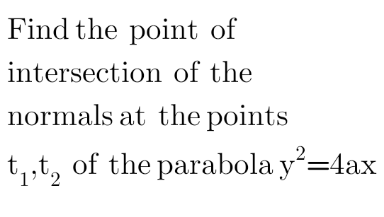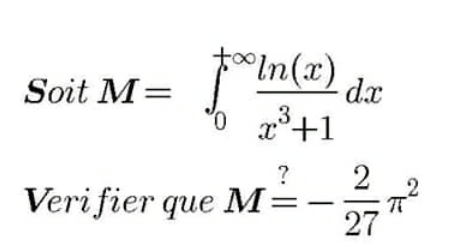
AllQuestion and Answers: Page 1017
Question Number 118822 Answers: 2 Comments: 0
Question Number 118819 Answers: 3 Comments: 0
Question Number 118813 Answers: 1 Comments: 0
Question Number 118811 Answers: 1 Comments: 4

Question Number 118810 Answers: 3 Comments: 0
$$\sqrt{\mathrm{2003}}\:+\:\sqrt{\mathrm{2005}}\:<\:\mathrm{2}\sqrt{\mathrm{2004}}\:\:??? \\ $$
Question Number 118798 Answers: 2 Comments: 0
Question Number 118793 Answers: 0 Comments: 0

Question Number 118791 Answers: 2 Comments: 0

Question Number 118790 Answers: 0 Comments: 0
Question Number 118781 Answers: 0 Comments: 6

Question Number 118780 Answers: 2 Comments: 0
Question Number 118777 Answers: 1 Comments: 0
Question Number 207634 Answers: 1 Comments: 0
Question Number 118768 Answers: 1 Comments: 0

Question Number 118759 Answers: 0 Comments: 4
Question Number 118757 Answers: 2 Comments: 1

Question Number 118753 Answers: 3 Comments: 1
$$\int_{\mathrm{2}} ^{\mathrm{4}} {x}^{\mathrm{3}} {e}^{{x}} {dx} \\ $$
Question Number 118752 Answers: 0 Comments: 0
Question Number 118747 Answers: 4 Comments: 0
Question Number 118740 Answers: 1 Comments: 1
Question Number 118733 Answers: 4 Comments: 1

Question Number 118727 Answers: 0 Comments: 0

Question Number 118712 Answers: 4 Comments: 0
Question Number 118711 Answers: 0 Comments: 1
Question Number 118710 Answers: 2 Comments: 0

Question Number 118705 Answers: 2 Comments: 0
Pg 1012 Pg 1013 Pg 1014 Pg 1015 Pg 1016 Pg 1017 Pg 1018 Pg 1019 Pg 1020 Pg 1021
